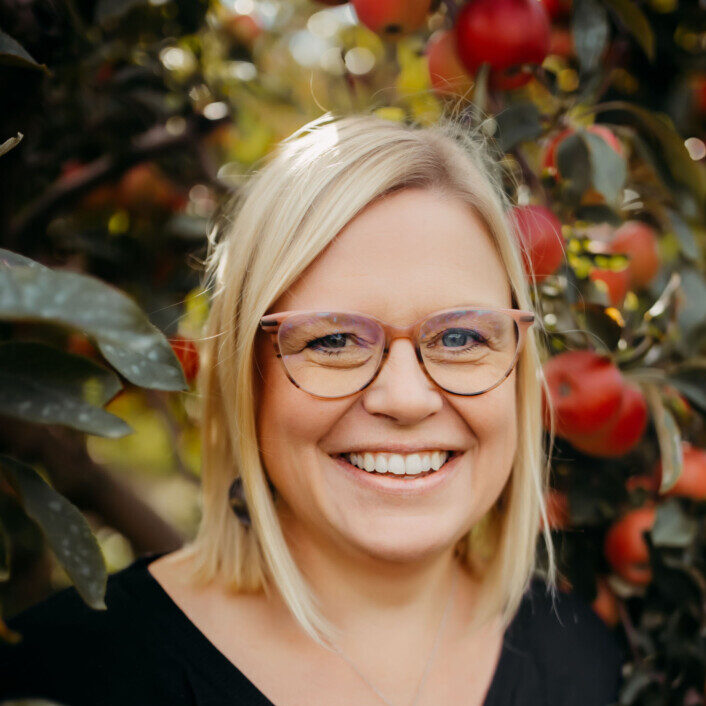I remember the day so clearly. I left a staff meeting during which our district announced plans to cut $2 million from our budget after the State of Michigan made sweeping cuts to schools. The meeting outlined the particulars: eliminating field trips, reduction of reading support, less support staff, fewer librarians.
At that time, my children went to an elementary school just across the parking lot from the middle school where I taught. I was walking heavy-hearted to the school’s entrance to pick them up at the end of the school day. As I passed the line of idling buses waiting for students to board, I looked up to see a middle-aged bus driver stand from her seat, lean over, and repair a first grader’s ponytail. I found myself crying, realizing that not one person in that school had a job that could possibly be labeled dispensable.
Quiet Heroes
If you’ve spent any time in a school, a nursing home, a daycare, a church — any place with a primary purpose of serving people — you’ve encountered these quiet heroes. They are seldom those with their faces hanging up on posters as you enter the building. They rarely have a fancy office or a sophisticated title. They are the lunch aides who give the hungry student an extra scoop of potatoes, the paraprofessionals who bring kids in wheelchairs to the bathroom, the custodians who are summoned to every nook and cranny of the building to clean up who knows what.
Several years ago I went out for dinner with friends. Their five-year-old daughter, Jenna, was patiently waiting for her kid’s meal. When the waitress set her cheese pizza in front of her, her mom leaned over and said, “Jenna, thank Jesus for your food.” Jenna looked at her mom, bewildered and said, “The waitress’s name is Jesus?”
Perhaps one revolutionary step we can take in a world seemingly bent on giving most of its attention to those with influence, power, and the loudest, screaming voices is to slow down enough to notice, to truly see all the Jesuses around us. Perhaps we should spend more time thanking those who often go unnoticed or making eye contact and a connection with those who quietly and consistently show up.
Writer and theologian Pete Rollins tells the story of a young woman who boarded a train and quickly realized she had forgotten a ticket and didn’t have any money along. When the big, burly conductor walked toward her, she began to panic, but then honestly confessed her error and started to talk with him. Soon, they were engaged in a conversation about their families, their lives, joking, showing pictures of their children, and telling stories. He moved on, but when she got up to exit the train, she stopped to thank him for his grace. He looked up and said to her, “It’s okay. You know what? It was just nice to finally be seen.”
Though the conductor was a man surrounded by people all day, rarely did he feel like he was more than a fixture, more than a part of a system designed to serve people, to give them what they needed or expected. Rollins, explaining the story, says this: “Love calls people into existence.”
Not Seeing and Looking Past
One of the biggest challenges to being someone who sees, someone who spreads the kind of love and grace that calls people into existence is the risk it poses to one’s own comfort and complacency. I spend much of my time in comfortable places: a workplace where people know my name, a church where friends await me, a community where I’ve never felt significantly alienated. It’s often easy not to notice the periphery, not to go out of my way to look for discomfort or pain.
It’s interesting that we often differentiate between hearing and listening, but that sight doesn’t often have a distinctive counterpart. We might argue that there is a difference between looking and seeing, but both contain the danger of gazing right past something or someone of significance. Both words connote that it’s possible to use our eyes with little connection to our minds or hearts.
When the Bible speaks of sight, whether it is the loss of or restoration of vision, it’s almost always more than physical seeing. Blindness is a metaphor used to represent missing much more than the physical sense of sight. In John 9, it’s the Pharisees who are declared blind after their inability to recognize the divine in front of them. After Jesus heals a blind man, they are more concerned with legalism and rule-keeping on the Sabbath than joining in the work of mending a broken world. In Acts, something like scales fall from Paul’s eyes as he’s transformed, and in the Gospel of Luke, Zacchaeus’s life is changed when he climbs a sycamore tree in an attempt to see Jesus and then Jesus stops in that busy crowd to see him back, to give him the gift of his time and attention.
Be Thou My Vision
While there is something sacred about being seen, there is something equally sacred about those who make it their business to look out for others. We tend to be distracted people, prone to doze and fixate on the shiniest or loudest things around us, needing reminders to be physically and spiritually awake enough to see others, to give and receive the kind of mundane, everyday love that has the DNA of miracles, a sight that is much stronger than our senses.
One of those reminders for me comes in the form of one of my favorite hymns, which sources say is originally either a 6th or 8th Century Irish prayer: “Heart of my own heart, whate’er befall, Still be my Vision, O Ruler of all.”

